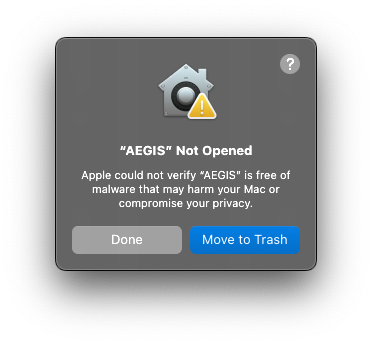Aegis can be run in two ways: using the command-line script or through the graphical Client. Use whichever method works best for your workflow.
Using the Provided Script
To run Aegis from the command line, use the run.py script.
The basic usage is shown below:
python run.py \
--agent-amount <agent amount> \
--rounds <num of rounds> \
--agent <agent directory> \
--world <world file>For Assignment 1, the --agent-amount argument is optional and defaults to 1. You can omit it when running the command.
Here’s an example using the example_agent and ExampleWorld for 50 rounds:
python run.py \
--rounds 50 \
--agent example_agent \
--world ExampleWorldIf you need a quick reminder of how the script works, run it with the -h flag to display the help menu:
python run.py -hUsing the Client
You can open the Client either through the terminal or your system’s file explorer. To launch it from the terminal, navigate to the client directory and run the appropriate command below:
Once the Client opens, follow the steps below to run a simulation.
Setting Up Aegis
Since the Client can't automatically locate the Aegis code, click the Setup Aegis Path button and select the root aegis directory.
If successful, the sidebar tabs will appear and the Client will list available worlds when prompted to select one.
Starting the Simulation
Go to the Aegis tab, select a world, and configure the number of rounds.
Once the Start Up Game button becomes active, click it. You’ll know Aegis has launched when the console confirms it or the button changes to Kill Game.
Connecting Agents
Switch to the Agents tab, select the agent you wish to connect, and assign it a group name.
Click Connect Agent once the button becomes available.
Running the Simulation
If everything is set up correctly, the simulation should start and display in the main window.
